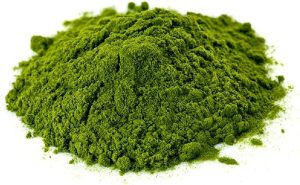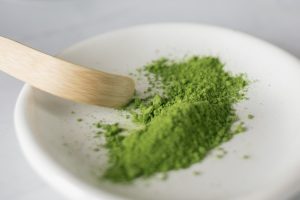
- Overview of Vitamin B12, a.k.a Cobalamin
- Brief History of Vitamin B12, a.k.a Cobalamin
- Functions of Vitamin B12, a.k.a Cobalamin
- Recommended Daily Intake (RDI), Recommended Dietary Allowance (RDA), Adequate Intake (AI) or Reference Nutrient Intake (RNI) for Vitamin B12, a.k.a Cobalamin
- Deficiency of Vitamin B12, a.k.a Cobalamin
- Food Sources of Vitamin B12, a.k.a Cobalamin and Where to Get It From
- Vitamin B12, a.k.a Cobalamin and Its Interaction with Other Medications
- Websites and Articles to Delve into the Benefits of Vitamin B12, a.k.a Cobalamin
- Disclaimer
Overview of Vitamin B12, a.k.a Cobalamin
Vitamin B12, also known as cobalamin, is a water-soluble vitamin crucial for various physiological processes. It plays a vital role in the formation of red blood cells, DNA synthesis, neurological function, and energy metabolism. B12 is primarily found in animal products such as meat, fish, eggs, and dairy.
Adequate B12 intake is essential for preventing pernicious anemia, a condition resulting from B12 deficiency. Individuals at risk of deficiency include those with certain gastrointestinal conditions, older adults, and strict vegetarians.
B12 absorption relies on intrinsic factor produced in the stomach. Deficiency symptoms include fatigue, neurological issues, and megaloblastic anemia.
B12 supplementation may be necessary for those with absorption issues or insufficient dietary intake. Regular monitoring and healthcare professional guidance are crucial for managing B12 levels.
Brief History of Vitamin B12, a.k.a Cobalamin
The history of Vitamin B12, also known as cobalamin, is intertwined with significant advancements in the understanding of nutritional science and medicine. Here are key milestones in the history of Vitamin B12:
- 1926 – Discovery of Pernicious Anemia Treatment:
- English physician George Whipple and his team discovered that feeding patients with pernicious anemia raw liver led to a remarkable improvement. This was a pivotal step in understanding the role of an unknown factor in liver that could treat the condition.
- 1928 – Identification of Vitamin B12:
- American researchers George Minot and William Murphy, along with British scientist Sir William P. Murphy, identified that the active component in liver responsible for treating pernicious anemia was a “nutritional factor.” However, the specific vitamin wasn’t isolated until later.
- 1948 – Isolation of Vitamin B12:
- Scientists Albert Szent-Györgyi and Karl Folkers isolated Vitamin B12. This marked a major breakthrough in understanding the structure and function of this essential nutrient.
- 1955 – Nobel Prize in Physiology or Medicine:
- Vincent du Vigneaud, an American biochemist, was awarded the Nobel Prize in Physiology or Medicine for his work on the structure of Vitamin B12.
- 1980s – B12 as Coenzyme:
- Further research revealed that Vitamin B12 functions as a coenzyme, playing a crucial role in various metabolic processes, including DNA synthesis and energy production.
| Year | Event |
|---|---|
| 1926 | Discovery of Pernicious Anemia Treatment: English physician George Whipple and team observe that feeding pernicious anemia patients raw liver leads to significant improvement. This discovery highlights an unknown factor in liver that can treat the condition. |
| 1928 | Identification of Vitamin B12: American researchers George Minot and William Murphy, along with British scientist Sir William P. Murphy, identify the active component in liver responsible for treating pernicious anemia as a “nutritional factor.” However, the specific vitamin is not isolated until later. |
| 1948 | Isolation of Vitamin B12: Scientists Albert Szent-Györgyi and Karl Folkers successfully isolate Vitamin B12, marking a major breakthrough in understanding its structure and function. |
| 1955 | Nobel Prize in Physiology or Medicine: Vincent du Vigneaud, an American biochemist, is awarded the Nobel Prize in Physiology or Medicine for his work on the structure of Vitamin B12. |
| 1980s | B12 as Coenzyme: Further research reveals that Vitamin B12 functions as a coenzyme, playing a crucial role in various metabolic processes, including DNA synthesis and energy production. |
Today, Vitamin B12 is recognized as essential for human health, with dietary sources including animal products. Deficiency can lead to serious health issues, emphasizing the importance of maintaining adequate B12 levels through diet or supplementation, particularly for individuals at risk, such as those with certain medical conditions or following vegetarian or vegan diets.
Functions of Vitamin B12, a.k.a Cobalamin
Vitamin B12, also known as cobalamin, plays crucial roles in various physiological functions. Here are key functions of Vitamin B12:
- Red Blood Cell Formation:
- Vitamin B12 is essential for the production and maturation of red blood cells. It works in conjunction with folate to prevent megaloblastic anemia, a condition characterized by large, immature red blood cells.
- DNA Synthesis and Cell Division:
- B12 is involved in DNA synthesis and cell division. It plays a key role in the formation and maintenance of genetic material.
- Neurological Function:
- B12 is critical for the health of the nervous system. It helps maintain the protective covering (myelin) around nerve fibers, and its deficiency can lead to neurological issues such as tingling, numbness, and difficulty walking.
- Energy Metabolism:
- B12 is part of the coenzymes that are involved in the metabolism of carbohydrates and fats, contributing to the production of energy.
- Conversion of Homocysteine:
- Vitamin B12, along with folate and vitamin B6, helps convert homocysteine to methionine. Elevated levels of homocysteine are associated with an increased risk of cardiovascular disease.
- Cell Growth and Division:
- B12 supports normal cell growth and division, playing a crucial role in maintaining tissues and organs.
- Synthesis of Neurotransmitters:
- B12 is involved in the synthesis of neurotransmitters, including serotonin and dopamine, contributing to mood regulation and cognitive function.
Vitamin B12 is primarily found in animal products such as meat, fish, eggs, and dairy. Absorption of B12 from food relies on intrinsic factor, a substance produced in the stomach. Deficiency can occur in individuals with conditions affecting B12 absorption, such as pernicious anemia or certain gastrointestinal disorders. Supplementation or B12 injections may be necessary in cases of deficiency. Always consult with a healthcare professional for personalized advice based on individual health needs.
Recommended Daily Intake (RDI), Recommended Dietary Allowance (RDA), Adequate Intake (AI) or Reference Nutrient Intake (RNI) for Vitamin B12, a.k.a Cobalamin
The Recommended Dietary Allowance (RDA) for Vitamin B12, also known as cobalamin, can vary based on factors such as age, sex, and life stage. The values provided below are general recommendations, and individual needs may vary. The values are typically given in micrograms (mcg) per day:
- Infants (0-12 months): 0.4 mcg
- Children (1-3 years): 0.9 mcg
- Children (4-8 years): 1.2 mcg
- Children (9-13 years): 1.8 mcg
- Adolescents (14-18 years): 2.4 mcg
- Adults (19 years and older): 2.4 mcg
- Pregnant individuals: 2.6 mcg
- Breastfeeding individuals: 2.8 mcg
It’s important to note that Vitamin B12 is primarily found in animal products, and individuals following strict vegetarian or vegan diets may need to obtain B12 through fortified foods or supplements. Additionally, certain medical conditions or medications may impact B12 absorption.
Always consult with a healthcare professional or a registered dietitian for personalized advice based on specific circumstances. Nutrient recommendations may be subject to updates, so it’s advisable to refer to the latest dietary guidelines from health authorities in your region.
Deficiency of Vitamin B12, a.k.a Cobalamin
Vitamin B12 deficiency can lead to various health issues due to its crucial roles in red blood cell formation, DNA synthesis, and neurological function. Common causes of B12 deficiency include inadequate dietary intake, malabsorption issues, and certain medical conditions. Here are potential consequences and symptoms of Vitamin B12 deficiency:
- Pernicious Anemia:
- B12 deficiency can cause pernicious anemia, a type of anemia characterized by a lack of mature red blood cells. Symptoms include fatigue, weakness, and pale or jaundiced skin.
- Neurological Symptoms:
- B12 is vital for maintaining the health of the nervous system. Deficiency can lead to neurological issues such as numbness or tingling in the hands and feet, difficulty walking, balance problems, and memory loss.
- Mood Changes:
- B12 deficiency has been linked to mood changes, including depression and irritability.
- Cognitive Decline:
- Long-term deficiency may contribute to cognitive decline and an increased risk of dementia in older adults.
- Gastrointestinal Issues:
- B12 deficiency can lead to gastrointestinal symptoms such as diarrhea and constipation.
- Smooth Tongue and Mouth Ulcers:
- Changes in the tongue, making it appear smooth, and the development of mouth ulcers can be signs of B12 deficiency.
- Vision Changes:
- Severe deficiency may lead to vision changes or optic nerve damage.
Risk factors for B12 deficiency include age (older adults are more susceptible), a vegetarian or vegan diet without B12 supplementation, certain gastrointestinal conditions (e.g., pernicious anemia, celiac disease), and certain medications (e.g., proton pump inhibitors, metformin).
Treatment typically involves B12 supplementation through injections or oral supplements. It’s essential to identify and address the underlying cause of the deficiency to prevent long-term complications. Individuals experiencing symptoms or at risk of B12 deficiency should consult with a healthcare professional for proper evaluation and guidance.
Food Sources of Vitamin B12, a.k.a Cobalamin and Where to Get It From
Vitamin B12, also known as cobalamin, is primarily found in animal products. Including these foods in your diet can help ensure an adequate intake of Vitamin B12. Here are some common food sources:
- Meat:
- Beef, pork, lamb, and other meats are rich sources of B12.
- Poultry:
- Chicken and turkey provide B12, especially in the darker meat.
- Fish:
- Fatty fish such as salmon, trout, tuna, and sardines are good sources of B12.
- Shellfish:
- Clams, mussels, crabs, and oysters contain significant amounts of B12.
- Dairy Products:
- Milk, cheese, and yogurt are sources of B12. However, the content in dairy is lower compared to meat and fish.
- Eggs:
- Eggs, especially the yolk, contain B12.
- Fortified Foods:
- Some plant-based foods, such as breakfast cereals, plant-based milk (like soy or almond milk), and nutritional yeast, are fortified with B12. Check food labels for information.
For individuals following vegetarian or vegan diets, obtaining sufficient B12 can be a challenge as it is mainly found in animal products. In such cases, B12 supplementation or fortified foods are often recommended to prevent deficiency. It’s crucial to consult with a healthcare professional or a registered dietitian to determine the most appropriate approach based on individual dietary patterns and health needs. Regular monitoring of B12 levels is important, especially for those at risk of deficiency.
Vitamin B12, a.k.a Cobalamin and Its Interaction with Other Medications
Vitamin B12 generally has few interactions with medications. It is considered safe for most people, and interactions are typically minimal. However, there are some considerations to keep in mind:
- Proton Pump Inhibitors (PPIs) and H2 Blockers:
- Long-term use of proton pump inhibitors (PPIs) and H2 blockers, medications used to reduce stomach acid, may reduce the absorption of B12. Individuals on prolonged therapy with these medications may require monitoring of B12 levels and, in some cases, supplementation.
- Metformin:
- Metformin, a medication commonly used to treat type 2 diabetes, may interfere with B12 absorption. Long-term use of metformin has been associated with a higher risk of B12 deficiency. Regular monitoring of B12 levels and supplementation if needed are recommended for individuals on metformin.
- Colchicine:
- Colchicine, used to treat gout, may interfere with the absorption of B12.
- Chloramphenicol:
- Chloramphenicol, an antibiotic, may reduce the activity of B12.
- Neomycin and Aminosalicylic Acid:
- Some antibiotics, such as neomycin, and certain medications used to treat inflammatory bowel disease, like aminosalicylic acid, may interfere with B12 absorption.
- Potassium Supplements:
- High doses of potassium supplements may reduce B12 absorption.
While these interactions are noted, they are generally manageable with proper medical supervision. Individuals taking medications that may affect B12 absorption should discuss this with their healthcare provider. Monitoring B12 levels through blood tests can help detect deficiency early, and supplementation may be recommended if needed.
Always inform your healthcare provider about all medications and supplements you are taking to ensure comprehensive and safe healthcare management.
Websites and Articles to Delve into the Benefits of Vitamin B12, a.k.a Cobalamin
Here’s a brief summary of information about Vitamin B12 from the provided websites:
- Harvard T.H. Chan School of Public Health:
- The Harvard Nutrition Source page on Vitamin B12 explains its importance for nerve function and the production of DNA and red blood cells. It also discusses dietary sources and absorption.
- WebMD:
- The WebMD page on Vitamin B12 deficiency covers symptoms, causes, and risk factors associated with insufficient B12 levels. It emphasizes the importance of B12 for nerve function and blood cell production.
- Mayo Clinic:
- The Mayo Clinic’s page on Vitamin B12 provides an overview of its functions in the body and discusses sources, recommended intake, and potential health benefits.
- National Institutes of Health (NIH) – Office of Dietary Supplements:
- The NIH factsheet on Vitamin B12 for consumers offers comprehensive information, including its functions, dietary sources, recommended intake, and potential health risks associated with deficiency.
- Wikipedia:
- The Wikipedia page on Vitamin B12 provides a detailed overview of its chemical structure, functions, sources, and related health considerations.
- Healthline:
- The Healthline article on Vitamin B12 focuses on dietary sources, functions, and potential benefits. It includes a list of foods rich in Vitamin B12.
- MedlinePlus:
- The MedlinePlus article on Vitamin B12 covers its functions, dietary sources, recommended intake, and information on deficiency symptoms and treatment.
- Medical News Today:
- The Medical News Today article explores various aspects of Vitamin B12, including its functions, dietary sources, and potential health benefits.
- Linus Pauling Institute (Oregon State University):
- The LPI page on Vitamin B12 provides scientific information on its functions, absorption, and potential health effects.
- FamilyDoctor.org:
- The FamilyDoctor.org page on Vitamin B12 discusses its importance for the nervous system, red blood cell formation, and energy production. It also covers dietary sources.
These summaries offer a snapshot of the information available on each website. For more detailed information, you may want to visit the respective websites directly.
Disclaimer
The information is solely provided for educational purposes. It is not intended to diagnose, treat, cure, or prevent any disease. Seek the advice of your physician or qualified healthcare provider with any questions you may have regarding a medical condition at all times. Never disregard professional medical advice because of something you have read or learned from this article.






